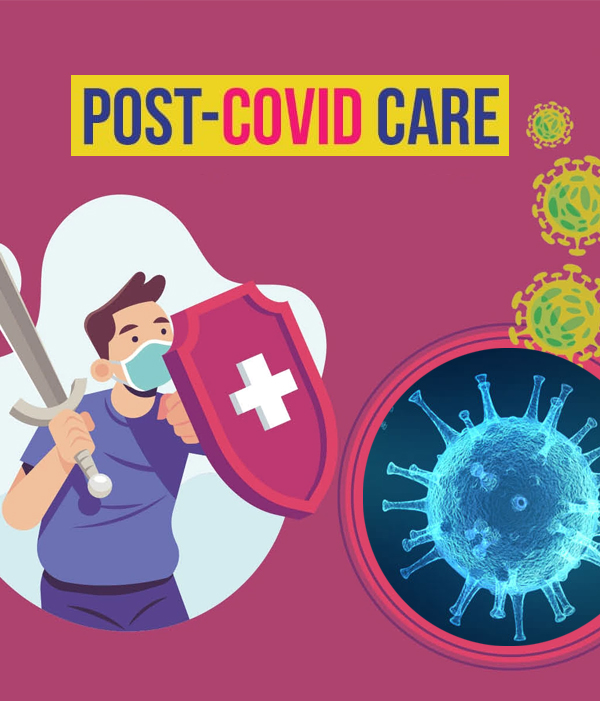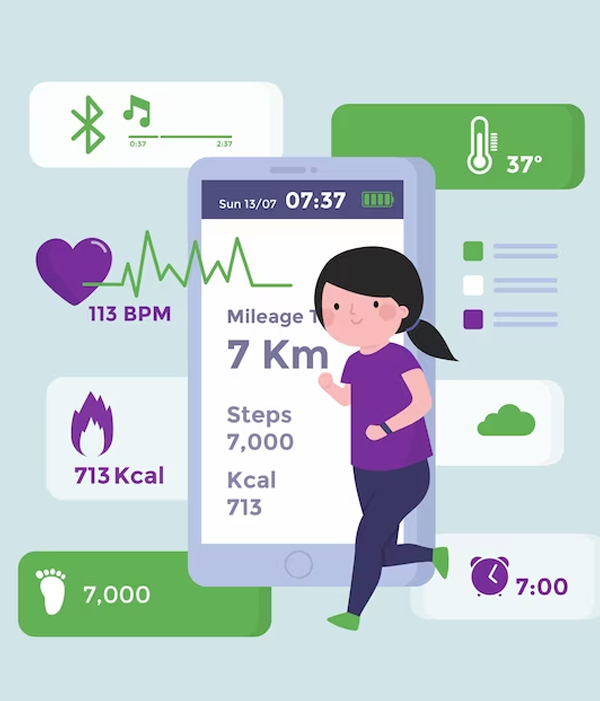Description
- Haematology Profile
- Blood Sugar – Fasting
- Liver Function Test (Total Protein A/G Ratio, SGPT, SGOT, Serum Alkaline Phosphatase)
- Lipid Profile( Serum Cholesterol, Serum Triglycerides)
- Serum Inorganic Phosphorous
- Urine Analysis
- TSH
- Serum Creatinine
- Serum Calcium
ESR (erythrocyte sedimentation rate)it is a blood test that can show if you have inflammation in your body. Inflammation associated with certain conditions like infection, injuries, immune system disorder, blood disorders, cancer disorders. Test used to monitor the conditions/disease. ESR shows a high results in conditions like anemia, Old age, pregnancy, large red cells, kidney disorders, arthritis. ESR value low in increased WBC counts, small red cells, red cell shape disorders. ESR not affecting malaria, typhoid fever, unruptured ectopic pregnancy, heart attack. Normal ranges in males less than 50 years is 0-15 mm in 1 hour and if more than 50 years 0 to 20 mm in 1 hour. Normal ranges in females if less than 50 years is 0-20 mm in 1 hour. If more than 50 years in females normal ranges 0-30 mm in 1 hour. In the newborn 0-2 mm in 1 hour. Children’s to puberty it ranges 0-13 mm in 1 hour.
complete blood count (CBC) is a blood test that measures different parts and features ofblood which includes red blood cells which carries oxygen, white blood cells which fight with infection, Platelets which stopsbleeding , hemoglobin protein in right cells, Hematocrit this measures how much of your blood is made up of red blood cells ,MCV is average size of red cells. CBC helps in diagnosing blood disorders, infection, immune system disorders and other medical conditions
hemoglobin (Hb) hemoglobin test measures the level of hemoglobin in your body. If your hemoglobin levels are abnormal it may be a sign that you are suffering with some disorder. Low hemoglobin levels refers to anemia, symptoms which include weakness, dizziness, cold hands and feet. Hemoglobin low levels is a sign of iron deficiency, thalassemia, liver disease, chronic disorder, cancer. Hemoglobin high levels is a sign of dehydration, high altitudes, lung disease, heart disease. Normal range of hemoglobin in males – 13.0 to 17.0 g/dL. In non-pregnant females it ranges 12.0-15.0 g/dL, in pregnant woman it ranges 11 0.0 -14.0 g/dL and in Children’s it ranges from 11-14.0 g/dL. A newborn it ranges from 13.6-19.6 g/dL
hematocrit or packed cell volumeis a blood test that measures how much of your body is made up of red blood cells. Hematocrit levels that are too high or too low can be a sign of blood disorder, dehydration or other medical conditions that affect your body
PC V (packed cell volume ) increased in dehydration, shock, burns, increased red blood cells. PCV decrease in anemia. PCV normal ranges of male 40%-50%, non-pregnant female 38%-45%, pregnant woman 36%-42%, in Childrens 36% to 46%, in newborn 44% to 60%
mean corpuscular volume (MCV )it measures the average size of red blood cells, that is too small or too large, it could be a sign of blood disorders such as anemia, lack of Minerals and vitamins or other medical conditions. MCV decreased is a sign of iron deficiency, sudden blood loss, bone marrow failure.M CV increased in Vitamin B12 deficiency, long-term alcoholism, liver disorder, hypothyroidism. MCV normally ranges from 80-100 Femtoliter
TC and DC (total count and differential count) The white blood cells count measures 2 components Ie total count and differential count . The differential count measures the% of each type of a white blood cells. Indications for WBC count include infections and inflammatory diseases, blood cancer, infection, bone marrow disorders. Total count decreases is a sign of Vitamin B12 deficiency, bone marrow failure, aplastic anemia, post radiation or cancer treatment. Total count increase in severe sepsis, blood cancer, infections, inflammations, drugs. Total count normal ranges in adults is 4000-11000 per microliter
Total count normal ranges in below 2 years of children is 5000-20000 x 10 (9) / L .
PLATELETS. The platelet test measures the number of platelets in your body. A lower than normal platelet count is called thrombocytopenia, it is associated with heavy bleeding even from small and injuries. A higher than normal platelet is called thrombocytosis this is associated with clots which blocked blood vessels. Platelets of lower levels is a sign of infection like dengue malaria etc, disseminated intravascular coagulopathies, genetic disorders, radiations. Platelets of higher levels is a sign of compensatory raise in severe blood loss and the blood cancers. Platelet normal count ranges from 1.5-14.5 lakhs per microliter of blood
FBS / fasting blood sugar test is blood test checks fasting blood sugar levels. Test done on fasting for ( 8-10 hours ). This test used to screen for pre-diabetes and diabetes. Also check the efficiency of medication/dietary changes were diagnosed with diabetic patient. Reference range less than 100 mg/dL. Pre-diabetes 100-125 mg/dL, diabetes more than 125 mg/dL.
liver function testis also known as Liver Panel. There are blood test that measured different enzymes, proteins, other substances made by liver. These tests check overall liver functions. That different substances are treated on a single blood sample at same time. These include albumin, total protein, ALP (alkaline phosphatase), ALT (alkaline trans Meniere’s, AST (aspirated aminotransferase), GG t (gamma glutamyl transferase), serum bilirubin, lactose dehydrogenase (LDH), prothrombin time (PT ). Symptoms of liver disease includes jaundice, nausea, vomiting, diarrhea, abdominal pain, dark colored urine, light colored stool, fatigue
lipid profileis a blood test done to measure each type of cholesterol. Lipid profile includes total cholesterol, low density lipoprotein (LDL), high density lipoprotein( HDL ), Triglycerides (another type of fat in your body), very low density lipoprotein (VL d l). It is done at an earlier age if you have diabetes, heart disease, stroke, high blood pressure, strong family history of heart disease . Follow up testing should be done for risk persons to prevent heart attack.
Serum phosphorus. The phosphorus blood test measures the amount of phosphate in the blood. Blood is drawn from a usually from the inside of the elbow or the back of the handdeficiency include loss of appetite, anxiety, bone pain, fragile bones, stiff joints, fatigue, irregular breathing, irritability, numbness, weakness, and weight change. In children, decreased growth and poor bone and tooth development may occur. Extra phosphorus causes body changes that pull calcium out of your bones, making them weak. High phosphorus and calcium levels also lead to dangerous calcium deposits in blood vessels, lungs, eyes, and heart. Over time this can lead to increased risk of heart attack, stroke or death.
complete urine examinationis a test for urine. It is often done to check for urinary tract infections, kidney problems, diabetes. It involves checking urine for sugars in diabetes mellitus , protein in kidney problems , ketones in starvation and diabetes ketoacidosis , bilirubin for jaundice , cells for cancer , crystals for cancers , bacteria for urinary infections
thyroid profileis the blood test to check how well your thyroid is working. There are also used to diagnosis and help to find the cause of thyroid disease such as hyperthyroidism and hypothyroidism. Thyroid profile includes TSH (thyroid stimulating hormone, free T4 levels, total T4, Total and free T3, TSI ( thyroid stimulating immunoglobulin), antithyroid antibody test (measures antibodies). TSH high in hypothyroidism symptoms, weight gain, delayed periods, cold intolerance, breast pain. TSH low in hyperthyroidism symptoms, weight loss, irregular periods, heat intolerance, eye disorders
kidney function test requires both the urine sample and blood sample. It includes following tests Blood Urea Nitrogen (BU N), creatinine (serum), creatinine clearance, creatinine urine. All these tests are done to check kidney function. Serum creatinine levels are elevated not only in kidney problems but also in muscle disorders and massive accident. Symptoms of kidney disorder include decreased urine output, body swelling, weakness, salt like crust on body, headache.
Calcium blood testmeasures the level of Calcium in the blood. Calcium test is done if you have following problems include certain bone Diseases , long-term kidney disease, long-term liver disease, disorders of a parathyroid glands, intestinal malabsorption, High Vitamin D blood level, hyperthyroidism. Serum Calcium normal ranges 8.5 – 10.2 mg/dL










Reviews
There are no reviews yet.